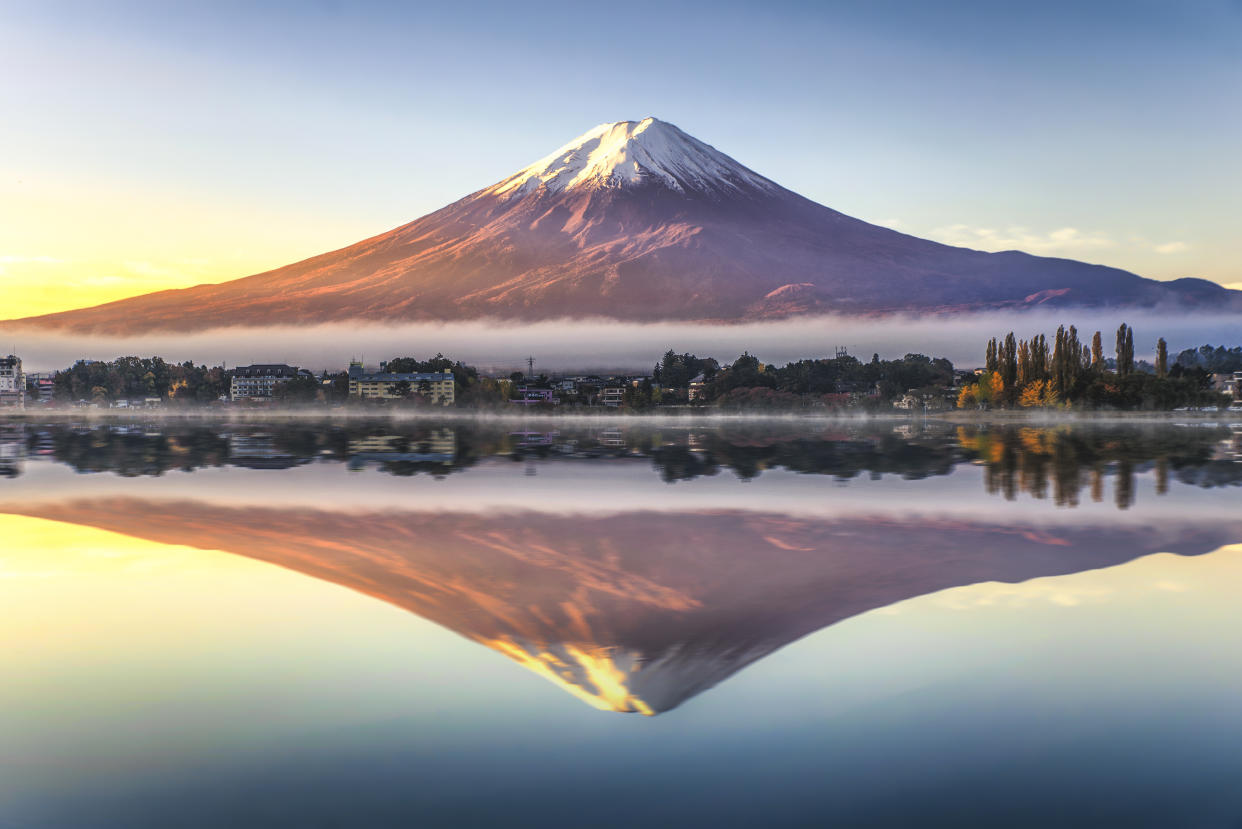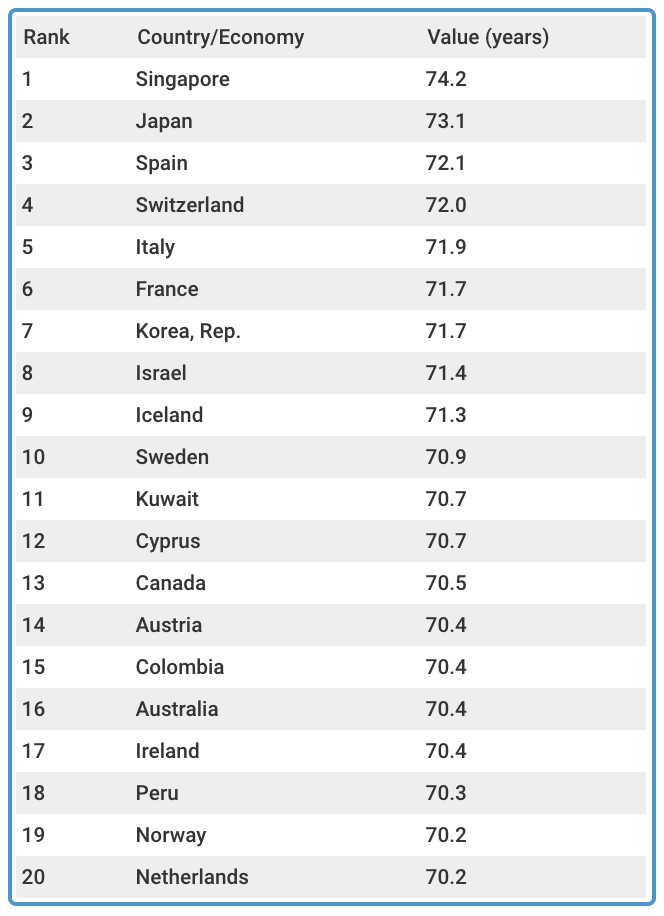The 20 countries where people live the longest

Singapore is the country with the highest life expectancy in the world, according to a new report. The southeast Asian country clocks an average life expectancy of 74.2 years. In second place is Japan, which averages 73.1 years.
The annual World Economic Forum (WEF) Global Competitiveness Report looks at 98 indicators across 140 countries to determine the overall ranking.
It uses surveys as well as official government and statistical data to organise the findings into 12 pillars, including health, skills, financial system, infrastructure, and institutions.
The WEF also lists countries by health life expectancy — the “number of years that a newborn can expect to live in good health, taking into account mortality and disability,” according to data from the Institute for Health Metrics and Evaluation, Global Burden of Disease 2017.
READ MORE: US-China trade war pushes Singapore to overtake US as world's most competitive economy
The US and UK ranked poorly — at 54 and 32, respectively. The average life expectancy in the US is 66.6 years while the UK average is 69.3 years.
Singapore and Japan commanded the top of the list while Spain came in third with 72.1 years, followed by Switzerland with 72 years.

Unsurprisingly, healthy diets and cleaner environments are the reasons for the longer lives of people living in the countries at the top of the list.
Japan is famed for its staple food products — fish, seafood, vegetables, whole grains, and tofu — which are continually cited as some of the leanest and most nutritionally balanced food to eat. Spain’s ‘Mediterranean Diet’ also is heralded by scientists as helping prolong life.
The report is used as a tool by over 100 of the world’s leading companies and 100 international, civil society, and academic organisations to make the economy, workforces, and businesses more productive. and integrate equality and inclusion into the new economy, aiming to reach one billion people with improved economic opportunities.


